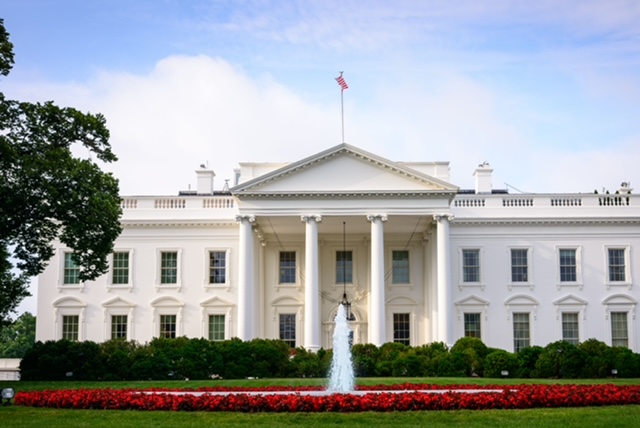Donald Trump is elected the 47th president of the United States. According to the Associated Press, Trump’s overnight win in Wisconsin put him over the 270 electoral threshold needed to clinch the presidency.
Trump’s major improvements in reaching the Latino electorate, especially Latino men, are being credited with edging him ahead of Vice President Kamala Harris.
Preliminary exit polls from CNN indicate that over half (54%) of Latino men support Trump, while 45% back Harris. In contrast, four years ago, the figures were nearly reversed. In 2020, 59% of Latino men supported Biden, while 36% supported Trump, according to exit polls from that election.
An estimated 36.2 million are eligible to vote this year, up from 32.3 million in 2020 reports the Pew Research Center. This represents 50% of the total growth in eligible voters during this time.
Latinos comprise around 30% of the electorate in two key Southwest battlegrounds, Arizona and Nevada, where Trump and Harris are locked in a neck-and-neck race. Trump lost both of the states to President Joe Biden in 2020.
Polling released today by UnidosUS and partner organizations reveals that Latino support for Harris was highest in Pennsylvania (72% to 26%), a key battleground state where Trump secured 19 electoral votes on Election Night. The poll also revealed that Latino voters were driven to the polls by their concerns over pocketbook issues, including the cost of living, jobs and the economy, housing affordability, and health care costs. An AP VoteCast poll found respondents say Trump is stronger on the economy.
Demographic Diversity and Regional Variations
Latino voters are not a monolithic group; they represent a diverse array of nationalities, cultures, and political beliefs. This diversity means that voting patterns vary significantly based on geographic location, age, and socioeconomic status.
In Florida, for instance, where Latinos voted for the Former President over Harris 53%-44%, many Cuban-American voters support Trump due to his strong stance against the socialist government in Cuba, which resonates with their personal histories and political values. In Texas, a combination of cultural conservatism and economic concerns led some Latino voters to favor Trump’s policies.
BSP Research’s polling of 1,900 Latino registered voters across eight battleground states highlights the complexity of this rapidly growing demographic, challenging the notion of a binary political alignment.
When asked which candidate they believe will protect democracy and uphold the Constitution, Mexican-Americans favored Harris by a 37-point margin, while Cuban-Americans preferred Trump by an 8-point margin.
Regarding the issue of abortion, three-fourths of Mexican and Puerto Rican Americans agreed with the statement that it is wrong to make abortion illegal and remove choice, regardless of personal beliefs.
Similarly, over two-thirds of Cuban-Americans expressed agreement with this perspective.
On immigration, 70% of Puerto Ricans, who are U.S. citizens, indicated they would be more likely to vote for a candidate who supports a path to citizenship for undocumented immigrants in the U.S. Among Cuban Americans, 71% expressed support for a candidate with a similar stance.
Understanding Latino Conservative Values
Among Latinos, there exists a segment that identifies with conservative values, which can be influenced by a combination of cultural, religious, economic, and social factors.
A strong emphasis on family is a hallmark of Latino culture, often influencing conservative values. Many Latino conservatives prioritize traditional family structures and uphold the importance of family unity. This focus on family extends to broader community ties, where there is often a commitment to supporting local initiatives and helping neighbors. These values align with conservative principles that emphasize the significance of the family as the foundational unit of society.
Religion plays a vital role in the lives of many Latinos, particularly among those who identify as conservative. A significant portion of the Latino population is Roman Catholic, but there is also a growing number of evangelical Christians. Faith often shapes moral and ethical perspectives, leading to conservative views on marriage, life, and social responsibilities. This connection to faith can foster a sense of community and shared values among Latino conservatives.
Education is a critical issue for many Latino conservatives, who often prioritize access to quality educational opportunities for their children. Many support school choice initiatives, including charter schools and voucher programs, which can provide better educational options for families. This focus on education aligns with conservative values that prioritize parental involvement and decision-making in children’s education.
Latino conservative values reflect cultural, religious, and economic beliefs emphasizing family, faith, individual responsibility, and community. While there is significant diversity within the Latino community, those who identify with conservative values contribute to the broader political landscape in the United States. Understanding these values is crucial for fostering dialogue and collaboration across different political and cultural perspectives. As Latino communities evolve and grow, their influence on American politics and society will likely remain significant.
